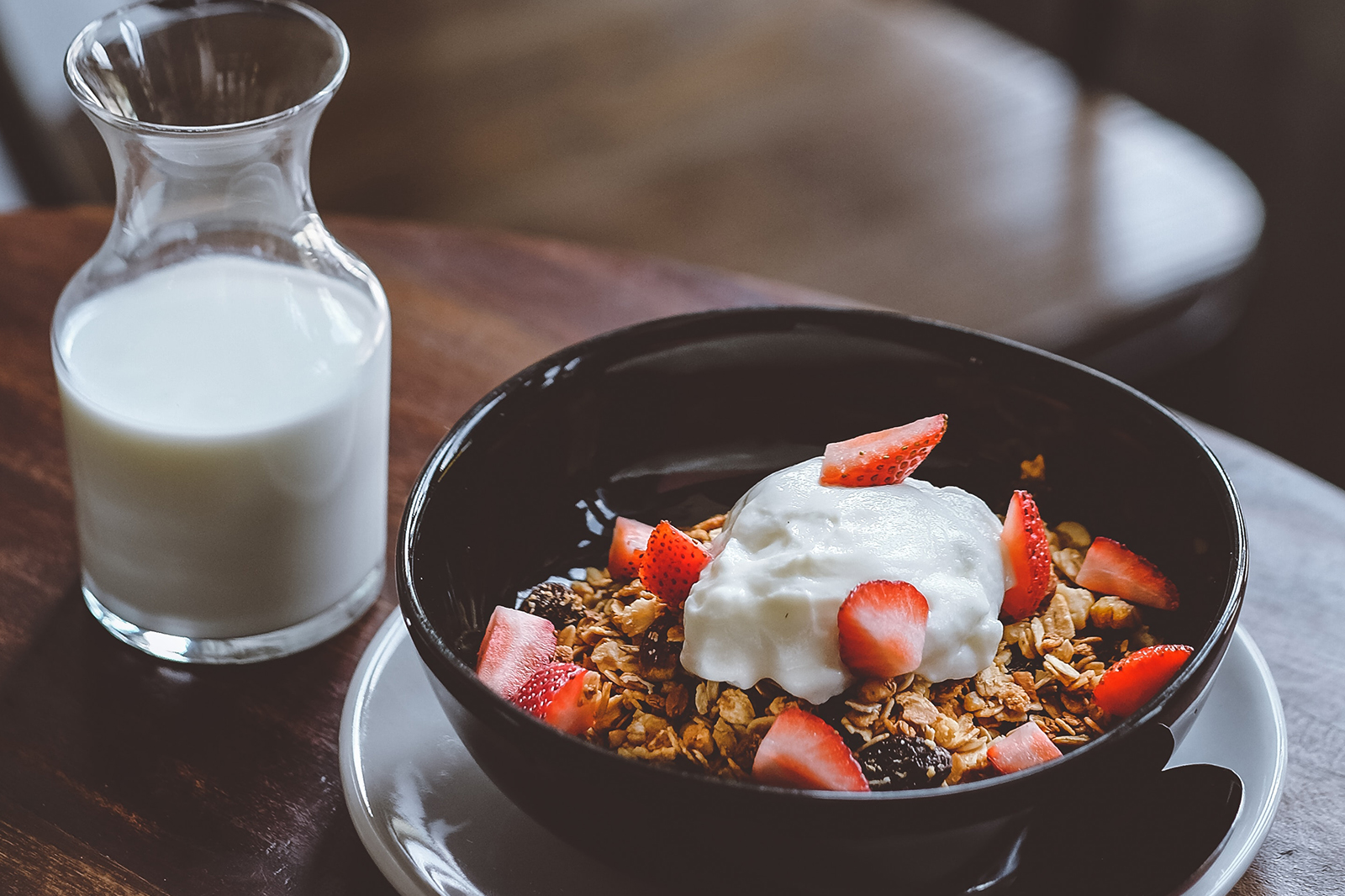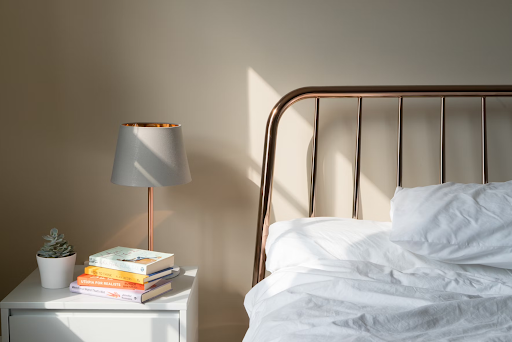The Best Foods to Help You Sleep

Author: Jonathan Warren

When it comes to good quality sleep, we often turn our attention to the most comfortable mattress, best looking bed and highest quality pillows. And while this is a smart move, it’s also crucial to understand that food and your diet also plays a huge part in how well you sleep and could be the answer to unlocking a better night's rest.
From focusing on food to help you sleep (such as teas and nuts), to avoiding certain food groups before you settle down, we have researched the very best and worst foods to eat before bedtime and how you can eat yourself to a more peaceful and replenishing sleep.
Which are the best foods to help you sleep?
Wondering what to eat before bed? As a rule of thumb, a good and balanced diet is the best way to eat your way to better sleep but there are some powerful sleep inducing foods you could try to help improve your slumber.
Kiwis
Perhaps an unlikely candidate for sleep improvement, the kiwi fruit has been known to lower cholesterol and improve digestion. They are also reported to have a positive impact on sleep and are packed with vitamins and minerals like Vitamin C and potassium.
Nuts
A handful of nuts, like walnuts, pistachios and almonds, could be just the ticket to better quality sleep. This is because nuts contain melatonin, often referred to as the sleep hormone, which helps our busy brains control our sleep cycle. Nuts also contain magnesium which controls metabolism, and zinc, which can boost your immune system.
Chamomile Tea
A warming cup of chamomile tea is the perfect way to wind down after a hectic day but can also help you get off to the land of nod that little bit quicker. Chamomile tea is not only known for its ability to boost immune systems and reduce symptoms of depression, but it also contains an antioxidant called apigenin, which can help promote sleepiness and tackle insomnia.
Fatty Fish
Fatty fish is a rich source of omega-3 fatty acids and Vitamin D which both help our bodies regulate serotonin and the sleep-wake cycle. Eating fatty fish regularly, such as salmon or mackerel, can therefore help you get to sleep quicker and improve your sleep quality as well as bolstering your overall health and wellness.
Milk
Melatonin and tryptophan are present in milk and are two of the reasons why having a glass of milk before bed could be just the ticket to the best night's sleep. Tryptophan is an amino acid which helps the production of serotonin, a precursor for melatonin. The sleep hormone found in milk, melatonin, helps control our circadian rhythms and is crucial to attaining a sound sleep.
Rice
Rice is a complex carbohydrate which releases energy slowly over a steady period of time and also has a high glycemic index, which tracks how quickly a food increases your blood sugar. Research has suggested that eating high glycemic index food shortly before bedtime can help to improve sleep quality.
Which are the worst foods to eat before bed?
As well as there being plenty of sleep inducing food options such as foods high in melatonin, there are certain menu options which could very well have the opposite effect. From spicy foods to tomatoes and chocolate, we have picked out some well researched examples of what to avoid for the love of sleep.
Chocolate
Sadly, a late night raid of the cupboards for a taste of chocolate will negatively affect your quality of sleep. This is primarily due to the fact that chocolate has a surprisingly high caffeine content which can interfere with your sleep cycle and make it more difficult to nod off in the first place.
Spicy Foods
Spicy foods can keep us all awake at night. Spicy recipes, from curries to chilli con carnes, can cause indigestion and increase acid reflux and heartburn symptoms. This can make sleep uncomfortable as lying flat will exacerbate the irritability of acid reflux and make staying asleep harder as the body will be using more energy to digest your last meal. Spicy foods also contain high levels of capsaicin which affects the body's thermoregulation process and ultimately disrupts our sleep.
Tomatoes
Acidity in tomatoes can prompt a bout of acid reflux or heartburn which are not often compatible with a good night's sleep. When you lie in a horizontal sleeping position, the acidity from the tomatoes is likely to crawl back up your oesophagus, making you feel extremely uncomfortable and unable to relax enough to get a decent rest.
Fried and Fatty Foods
Eating fatty or fried foods can cause digestion in your body to slow as the digestive system is likely to have been overwhelmed. Foods such as fried chicken and fatty meats that are high in saturated fat have been shown to negatively impact sleep patterns as they are associated with lighter, less restorative sleep with more arousals and disruptions. Anything that requires some serious work by your gut will undoubtedly impact your ability to achieve a deep sleep.
How to eat your way to a better sleep
When it comes to sleep, no one size fits all. Whilst some may find that kiwis, nuts or milk were the missing ingredient to a blissful night's sleep, there are plenty of other tips to keep in mind if you are still trying to maximise the quality of your kip.
Limit Caffeine
Often a necessity on Monday mornings, over-reliance on caffeine can negatively impact your quality of sleep. Too much caffeine can increase the amount of time it takes you to fall asleep and could decrease your sleeping time altogether. Remember that caffeine is ultimately a stimulant and takes a while to leave our bodies. Limiting your caffeine intake or avoiding caffeinated drinks after the early afternoon could have a drastic improvement to your sleep.
Limit Alcohol
Alcohol can negatively impact sleep in a number of ways. It suppresses REM sleep and causes regular sleep disruptions. Alcohol can also make you snore, since the muscles in your body will relax and the tissues in your nose, mouth and throat are more inclined to vibrate. If you can avoid drinking too much or ensure that you finish drinking alcohol a good couple of hours before yet, your sleep hygiene is bound to improve.
Don’t Get Too Full
Heading to bed with an overly full tummy can have a negative impact on your sleep quality. The body needs to spend time digesting foods but the digestive system will often slow down during sleeping hours. An increased need to digest food when we should be sleeping can lead to increased sleep interruptions and on top of that, being too full can be uncomfortable and not conducive to a relaxing sleep.
Don’t Eat Too Close to Bedtime
Eating too close to bedtime can often mean you are uncomfortable when you are trying to settle down in your cosy bed. Food can also prompt the release of insulin, which tells our bodies to use the food for energy. This energy burst can negatively impact our circadian rhythms and hamper your ability to drop off quickly.
Searching more for advice on how to improve your sleep quality?
Explore our blog for more tips on how to achieve a healthy sleep. From advice on how to keep cool at night in summer, to relaxation techniques and much, much more, you’re sure to find a dreamy solution to your nighttime woes! Or, if you’re really struggling to fall to sleep fast, why not visit our Relaxation Zone for some calming inspiration?



